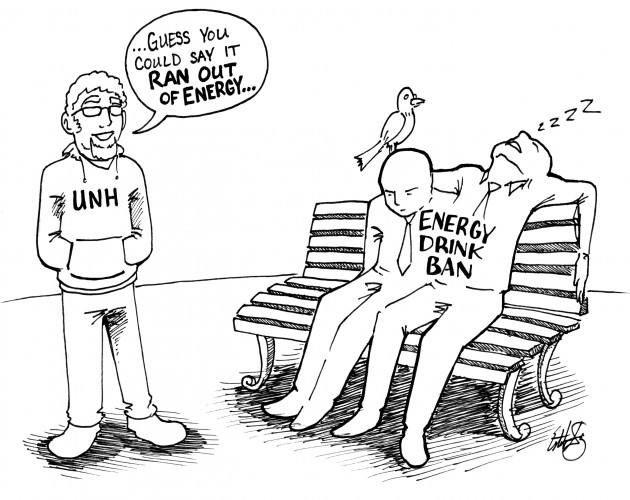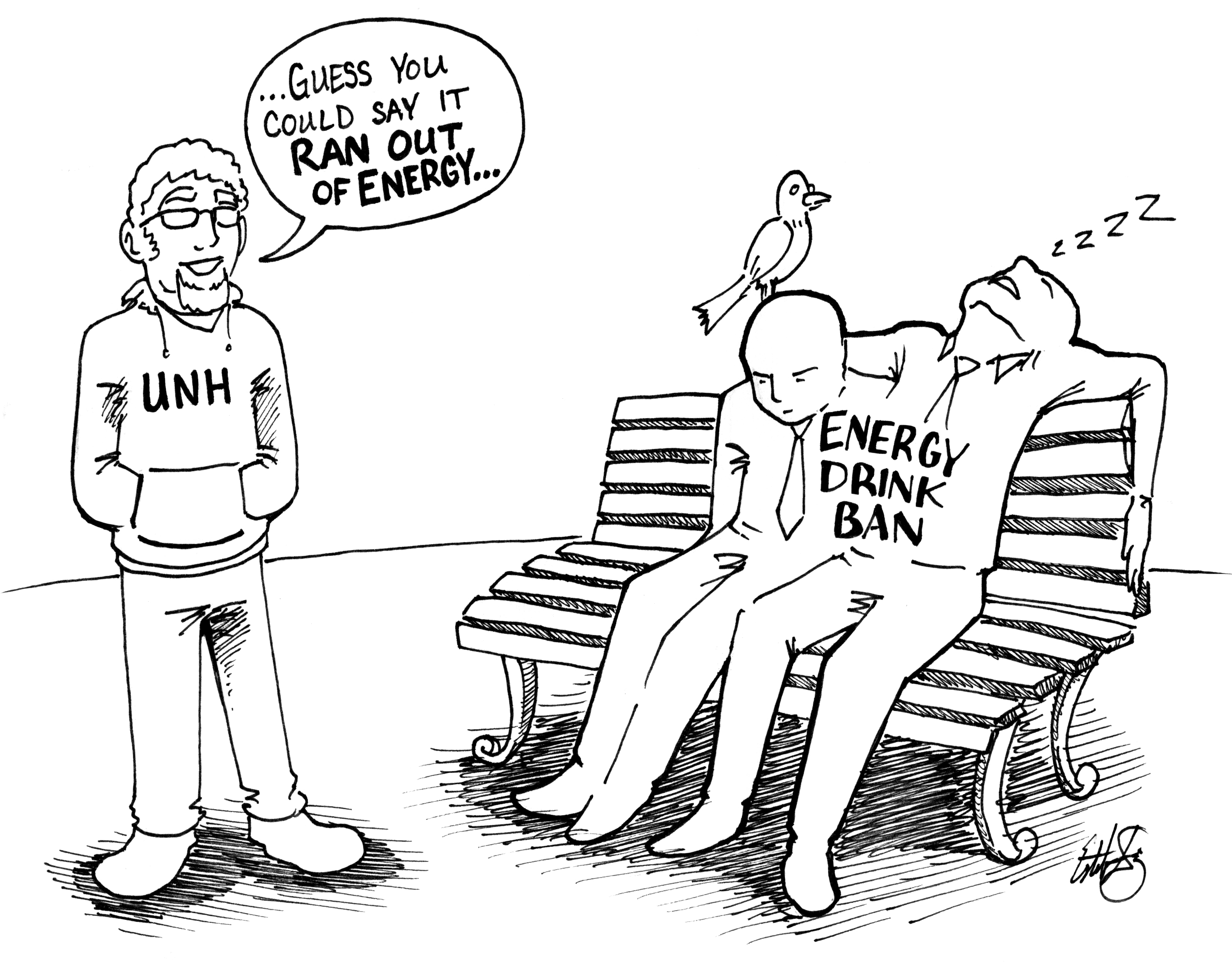
For a little while at the University of New Hampshire, coffee and soda were acceptable, but energy drinks were not.
The University of New Hampshire has expressed a desire to be designated the healthiest campus in America by 2020 and, as part of this pursuit, the administration banned the sale of energy drinks on campus before reversing the decision four days later.
The administration came to the right decision eventually, but there still seems to be a stigma surrounding energy drinks that is largely unjustified. What exactly is it that makes Red Bull so much worse than Starbucks coffee or a can of Dr Pepper? Not much.
Obviously it varies from drink to drink, but depending on the energy drink, coffee may actually have more caffeine than the so-called “harmful” energy drinks. Depending on the soda or energy drink, a can of soda could actually have more sugar.
Inside Higher Ed’s Allie Grasgreen quoted University of New Hampshire president Mark Huddleston, who said, “In this case, I am personally aware of conflicting reports about the caffeine and sugar content of some of these beverages, and I want to be sure we respect our students’ ability to make informed choices about what they consume.”
The above statement implies that students can make the wrong choice by choosing energy drinks over other drink options. Perhaps this not Huddleston’s meaning, but it would be consistent with what seems to be consensus among the general public.
What should be praised about Huddleston’s statement, however, is the fact that he cites the “conflicting reports about the caffeine and sugar content of some of these beverages.”
Just as Pepsi and Coke are not the same product, not all energy drinks can be merely lumped together as bad for students to drink. In fact, in situations where a student wants more caffeine than a typical soda would provide, certain types of energy drinks might actually be a middle ground between the amount of caffeine in most sodas and the amount of caffeine in most coffees.
There is no reason to demonize energy drinks for simply being energy drinks. We do not demonize all websites for being an inefficient use of time because flash game sites exist, so why do we feel the need to universalize energy drinks and label them all as bad?
Any policies that target energy drinks specifically instead of all beverages are going to be inherently flawed policies. Such policies will not lead to the results people desire because they focus merely on the beverages’ respective categories and not the actual content of each individual drink.
The Baylor administration should be praised for having not implemented policies as silly as what was attempted at the University of New Hampshire. We hope that other universities across the nation will avoid demonizing beverages that students throughout America enjoy.






